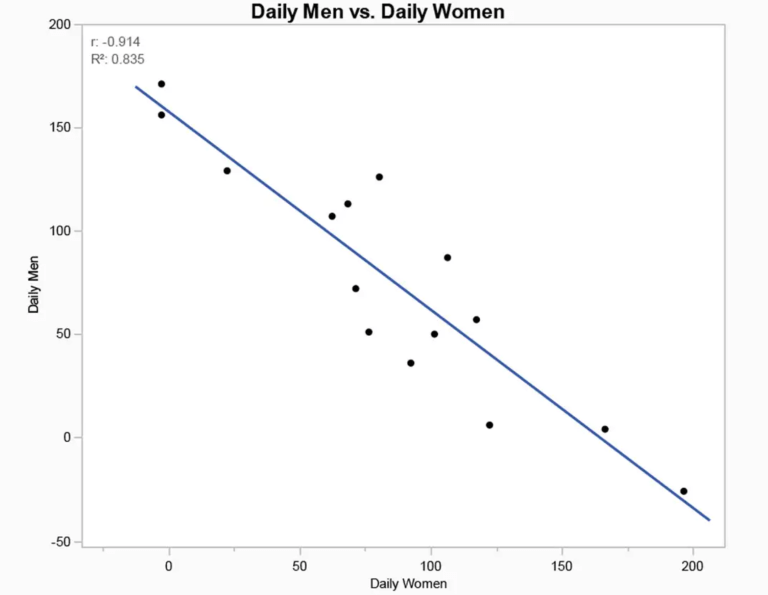I used to think that the “decolonization” of STEM was strongest in New Zealand and South Africa, which of course is a movement to dethrone so-called “Western” science in favor of indigenous science. But now I’m beginning to wonder if the “indigenization/decolonization of science” isn’t making its way deep into Australia as well. I have followed developments in New Zealand far more closely than these other places, because I hear often from Kiwi scientists who beef about the dethroning of modern science (which hasn’t been “Western” in a while) in favor of Mātauranga Māori (MM), the “way of knowing” of the indigenous Māori people. Also, I have visited New Zealand, love the place, and would be devastated if science were watered down with superstition, myth, legend, and morality.
And that’s the first issue with “decolonizing” science. Usually those movements intend to either defenestrate modern science or at least teach “indigenous science” alongside it as an equally valid “way of knowing”. Yet indigenous science, like MM, is a grab-bag of empirical knowledge based on trial and error (the premier example is the navigation of Polynesians, the ancestors of Māori; another is how to catch eels), but is also imbued with superstitions, myths, legends, word-of-mouth tales, and “rules for living”, including morality. And rarely is indigenous science vetted with the same rigor as is modern science, because modern science has many features missing in indigenous “ways of knowing” (double-blind testing, deliberate replication, hypothesis testing, and so on). One result is that “indigenous science” can be wrong more often. One example is the insistence of some New Zealand researchers that Polynesians discovered Antarctica in the early seventh century. This is based on oral legend combined with mistranslation; in fact, the Russians were the first to glimpse the continent—in 1820.
Now trial and error methods can indeed produce empirical knowledge in the sense of “justified true belief”, but that is practical knowledge, designed to help people where to find things to eat, how to navigate, how to herd bison, when to plant food, and the like. Its ambit is far narrower than that of modern science, and examples of “indigenous science” that have made valuable contributions to modern science are thin on the ground.
Which brings us to the second issue with indigenous science. Although it’s touted loudly and passionately, examples of indigenous knowledge making substantial contributions to modern science are either scant or missing. Most of the written defenses of enthroning indigenous science I’ve seen are based on a need to pay attention to marginalized people as oppressed victims, whose knowledge must be elevated precisely because they were victims. But that’s no way to judge science.
And that is precisely the content of this puff piec, coming from Australian National University (ANU) in Canberra, touting the dethroning of “mainstream European-based mathematics” in favor of mathematics produced and used by “Indigenous and First Nations peoples around the world.” The article highlights Professor Rowena Ball of ANU’s College of Science, who lists these as her research interests:
Mathematics Without Borders, Truth-Telling in Mathematics History, Decolonisation of STEM, Indigenous and Non-Western Mathematics, Emergence of life, Nonlinear and complex dynamical systems, Thermochemical instabilities and oscillators, Thermodynamic analysis, Railways and trains, Country pub lunches
What is mathematics? What is included in mathematics? Who gets to say? How and why did Western mathematics exclusively colonise minds and curriculums over the whole world? Should that situation continue unabated?
It will not escape your notice if you read the piece, heavy with quotes from Dr. Ball, that she neglects the contributions of anything other than “mainstream European-based mathematics” to modern mathematics, leaving out the contributions of the Egyptians, Greeks, Arabs, Romans, and Babylonians to modern mathematics. Those people were apparently not “indigenous” and at any rate were not “colonized”. But Ball goes on and on, proffering only one tepid example of how a group of Australian aboriginals in Mithaka Country (an area of east-central Australia) had a form of mathematics that was useful. It turns out that it wasn’t mathematics at all, but practical knowledge that we wouldn’t recognize today as “math” at all.
Click the screenshot to read this short piece (h/t Peter Forsythe):
First I’ll give some of her quotes from the ANU piece (indented) and then her holotype specimen of indigenous math.
What constitutes mathematical knowledge? What is included in mathematics? Who gets to decide? These are some of the questions being asked in a growing decolonisation movement.
“Mathematics is a universal human phenomenon, and students of under-represented and minority groups and colonised peoples are starting to be more critical about accepting unquestioningly the cultural hegemony of mainstream European-based mathematics,” says Professor Rowena Ball from the ANU Mathematical Sciences Institute.
Professor Ball leads a research and teaching initiative called Mathematics Without Borders, aimed at broadening and diversifying the cultural base and content of mathematics.
“Mathematics has been gatekept by the West and defined to exclude entire cultures. Almost all mathematics that students have ever come across is European-based,” she explains. “We would like to enrich the discipline through the inclusion of cross-cultural mathematics.”
“Indigenous and First Nations peoples around the world are standing up and saying: ‘Our knowledge is just as good as anybody else’s − why can’t we teach it to our children in our schools, and in our own way?’
“And this is happening in New Zealand, North and South America, and Africa, and also in a great movement in India to revive traditional Indian mathematics.”
But wait! There’s more:
. . .“There is a lot of gatekeeping going on,” Professor Ball says of having to justify Indigenous maths. “One effect of colonisation of the curriculum is defensive protection of what is thought to be an exclusively European and British provenance of mathematics.”
“Like most mathematicians I was educated in European and British mathematics,” says Professor Ball, “and it’s fine stuff – I still love my original research field in dynamical systems.” But that mathematics did not develop in isolation, she says, and now there’s even more to learn about how non-Western societies have been seeing the world mathematically that many of us haven’t yet tuned into.
“What the general public think of as mathematics tends to be whatever they learned (or, more likely, did not learn) at school. But in many Indigenous societies, mathematics is lived from when you are born to when you rejoin your ancestors,” Professor Ball says.
Rejoin your ancestors? Does she mean as underground worm food? I don’t think so. But I digress. Ball argues that indigenous math is largely non-numerical, though in her one unpublished paper that is mentioned in the article (see below), numbers and counting figure largely.
At any rate, here is the single example Ball gives of valuable indigenous mathematics. I am not making this up: it involves the direction of smoke signals.
“One interesting example that we are currently investigating is the use of chiral symmetry to engineer a long-distance smoke signalling technology in real time,” Professor Ball says. “If you light an incense stick you will see the twin counter-rotating vortices that emanate − these are a chiral pair, meaning they are non-superimposable mirror images of each other.”
A memoir by Alice Duncan Kemp, who grew up on a cattle station on Mithaka country in the early 1900s, vividly describes the signalling procedure, in which husband-and-wife expert team Bogie and Mary-Anne selected and pulsed the smoke waves with a left to right curl, to signal “white men”, instead of the more usual right to left spiral.
Mithaka country is southwest Queensland − Kurrawoolben and Kirrenderri (Diamantina) and Nooroondinna (Georgina) river channel country − and for thousands of years this region was a rich, well-populated cultural and trade crossroads of the Australian continent.
To create and understand these signals, you have to be a skilled practical mathematician, Professor Ball says.
“Theory and mathematics in Mithaka society were systematised and taught intergenerationally. You don’t just somehow pop up and suddenly start a chiral signalling technology. It has been taught and developed and practised by many people through the generations.”
At that time in the early twentieth century, British meteorologists were just beginning to understand the essential vortical nature of atmospheric flows.
“Imagine if the existing Indigenous Mithaka knowledge of vorticity had been recognised, nurtured and protected? In what ways may it have fed into the high performance, numerical weather forecasting capabilities that we all rely on now?” she asks.
I don’t find this at all convincing. First, Bogie and Mary-Anne sound like white oppressors to me. But even if they weren’t, is the “reverse curl” something the locals actually used to signal “white people around”? It couldn’t have been going on for thousands of years because the first European people arrived in Australia in the early 17th century. So was there an elaborate system of smoke signals before that? Perhaps, but how are they based on mathematics? Patterns of smoke, like drumbeats, is a kind of language, and how to make the patterns and get them understood correctly is based on trial and error. Where does the math come in?
Further, the claim that the Mithaka knowledge of vorticity—I’m not sure what that knowledge is beyond empirical ways to make smoke signals—would have revolutionized “high performance numerical weather forecasting” long before now is simply risible.
Well, that’s enough. But I’d be remiss not to at least mention a paper by Xu and Ball that defends the thesis above. It’s called “Is the study of Indigenous mathematics ill-directed or beneficial?“, and appears at Arχiv.org, which means it hasn’t been published or peer-reviewed. There are a few examples of indigenous mathematics, which I put below. In some cases you’ll have to look up the references given to check on which people they’re referring to:
Much of ordinary day-to-day arithmetic and geometry performed by ‘illiterate’ women, artisans, carpenters and many other workers are unwritten and even unspoken (Wood, 2000). The apprentice learns by watching carefully then doing the mathematics themselves. The use of tools–an unwritten approach–to support arithmetic has a long history; there are different media for recording and computing with numbers, including stones, twigs, knots and notches (Hansson, 2018). People of many Indigenous Pacific and Australian nations can use parts of the body to count quickly and accurately (Goetzfridt, 2007; Owens & Lean, 2018; Wood, 2000), communicating methods, operations and results through speaking, listening and gesture. Weaving skills were taught unwritten to next generations to construct the numerical relationships that give rise to the desired complex geometrical designs with symmetries (Hansson, 2018). Knotted quipus were used by ‘illiterate’ Inca people of South American
Andes regions to allot land and levy taxes (Ascher & Ascher, 2013). The quipu (Figure 1), with its columns of base-10 numerical data encoded as knots, can be thought of as a spreadsheet, and it seems likely that the Inca knew and applied some array and matrix operations.Dan, an Indigenous language of central Liberia, is non-written but Dan speakers can carry out arithmetic operations orally, including addition, subtraction and division, play games that require fast counting, tracking and calculating skills, and practice geometric principles in constructing buildings (Sternstein, 2008). Fractal geometry, developed to a high art in Western mathematics from the late 1960s and executed in silico, has non-Western antecedents that were implemented in the built environment in Africa (Eglash, 1998). Chaology and fractal geometry have also been a part of traditional Chinese architectural and garden design for thousands of years (Li & Liao, 1998).
Clearly some indigenous people could count and calculate, though the calculating seems to fall largely to the Chinese, not usually considered indigenous. At any rate, what’s above doesn’t jibe with the claim and quote in the article:
Numbers and arithmetic and accounting often are of secondary importance in Indigenous mathematics.
“In fact, as most mathematicians know, mathematics is primarily the science of patterns and periodicities and symmetries − and recognising and classifying those patterns.”
A lot of the above sounds like counting and accounting to me. Regardless, it’s clear that some indigenous people could count and figure out patterns that involved counting. I’m not so sure about the Inca “matrix” operations, but one can hardly carry out some kind of commerce or taxation without being able to count. At any rate, yes, indigenous people had a form of “counting and pattern mathematics,” but to put them on a par even with what the ancient Egyptians and Greeks accomplished mathematically is to give indigenous people too much credit.





















